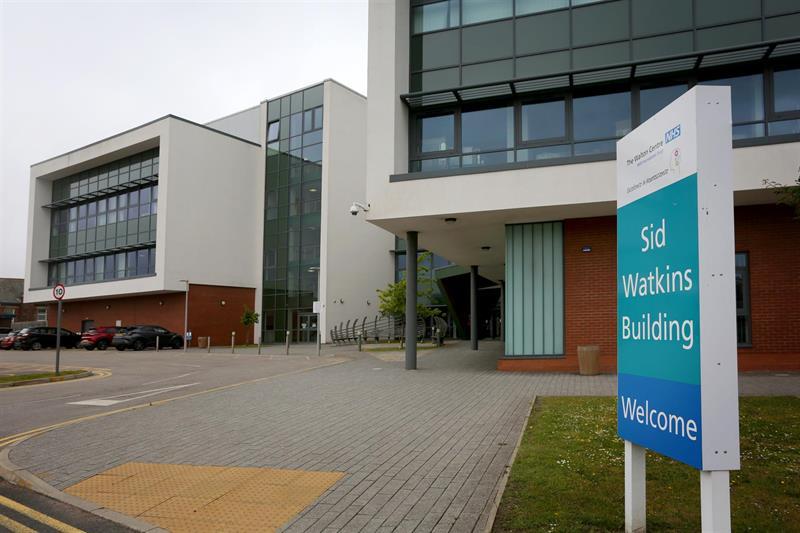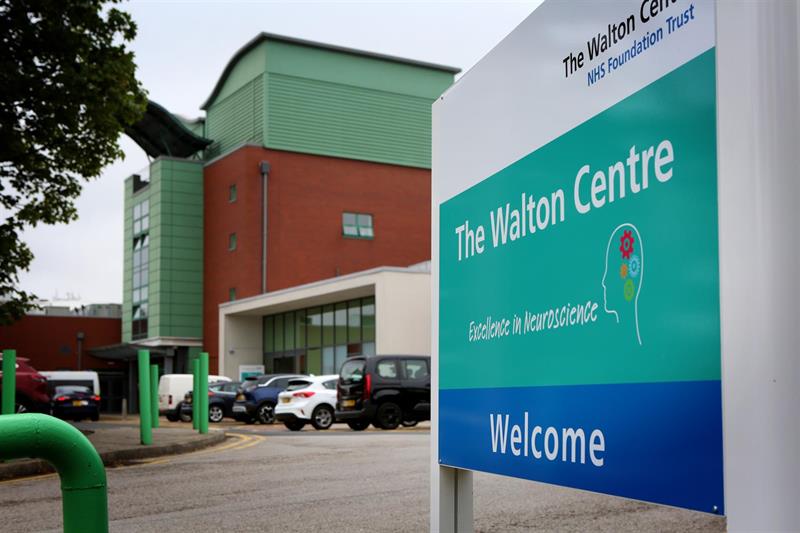Speech and Language Therapy
Service detail
Speech and Language Therapists (SLTs) work across the acute and rehab inpatient settings in the management of patients with both communication and swallowing disorders.
Communication impairments that SLTs help to diagnose include difficulties in expressing or understanding spoken or written language, difficulties in producing speech due to weakness in the speech muscles, voice difficulties, and social communication difficulties. Once identified, SLTs may work 1:1 with a patient targeting their areas of difficult. They also work extensively with a patient’s family members in order to support them to communicate effectively with their loved one. SLTs also help to identify alternative or augmentative means of communication (AAC) that may be necessary in order to help a patient express their wants and needs (this might include paper-based or hi-tech devices).
In the rehab setting, SLTs often organise group-based therapy sessions where patients can practise their communication skills in an informal and engaging social setting.
Across settings, SLTs work closely with other members of the multidisciplinary team, often completing joint sessions to encourage integrated and seamless care, ensuring that the patient’s holistic needs are taken into account.
SLTs are also responsible for the diagnosis and treatment of swallowing disorders (dysphagia). Across settings, this often involves bedside assessment of a patient’s swallowing abilities with close working with the medical and dietetics team to ensure safety of oral intake. SLTs may undertake further instrumental assessment of swallowing if required. Intervention for swallowing impairments might include exercises targeting the strength and skill of the swallow muscles or diet and fluid modification.
On the critical care and hyper-acute rehab wards, SLTs are also involved in the management of tracheostomies, working closely with the medical team and respiratory physiotherapists to monitor the secretion management and swallowing abilities of patients, and supporting assessment of suitability for weaning.
SLTs are also present in some of the outpatient clinics and will see patients with newly diagnosed motor neurone disease or with neuromuscular disease as part of the multidisciplinary services. Further information about these clinics may be found on The Walton Centre website.
Getting here
Rehab Team: Complex Rehab Unit, Sid Watkins Building
Acute Team: Main Building
Sid Watkins Building

This building hosts our Complex Rehabilitation Unit, some outpatients services, pain management services, corporate services and more.
Address
Lower Lane,Liverpool, L9 7BB
Directions and map
The Walton Centre NHS Foundation Trust is not responsible for third-party sites or content.
The Walton Centre - Main Hospital Building

This building hosts many of our in-patient services, including wards and theatres, and some outpatients services.
Address
Lower Lane, Liverpool, L9 7LJ
Directions and map
- View The Walton Centre - Main Hospital Building on a map
- Get directions to The Walton Centre - Main Hospital Building
The Walton Centre NHS Foundation Trust is not responsible for third-party sites or content.
Patient leaflets

Aphasia
Aphasia (or dysphasia) is the general term used to describe a difficulty with comprehension or expression of language

Dysarthria
Dysarthria is a speech difficulty leading to weakness or difficulty moving the muscles used for speech.

Dysphagia in myasthenia gravis
Dysphagia can occur in myasthenia gravis due to weakness in the muscles in your mouth and throat that you use to swallow. This means that these muscles don’t work effectively.

EMG Guided Therapy for Swallowing
The equipment you will be using with the team uses surface electromyography (EMG) to provide you with feedback about your swallow.

Level 1 thickened fluids (slightly thick)
Your Speech and Language Therapist has assessed your swallow function and has recommended that you thicken your drinks to make your swallow safer.

Level 2 thickened fluids (mildly thick)
Your Speech and Language Therapist has assessed your swallow function and has recommended that you thicken your drinks to make your swallow safer.

Level 3 thickened fluids (moderately thick)
Your Speech and Language Therapist has assessed your swallow function and has recommended that you thicken your drinks to make your swallow safer.

Level 4 thickened fluids (extremely thick)
Your Speech and Language Therapist has assessed your swallow function and has recommended that you thicken your drinks to make your swallow safer.

Neurological Long Term Conditions - Neuromuscular Team
The Neuromuscular service consists of Physiotherapists, Occupational Therapists, Speech and Language Therapists, Neuromuscular Nurse Specialist and Neuromuscular Advisors.

What is Cognitive Communication Disorder?
Communication is a complex process which involves many thinking, social and conversation skills – all of these skills work together to help us communicate effectively with the world around us.
Page last updated: 22 July 2021
64